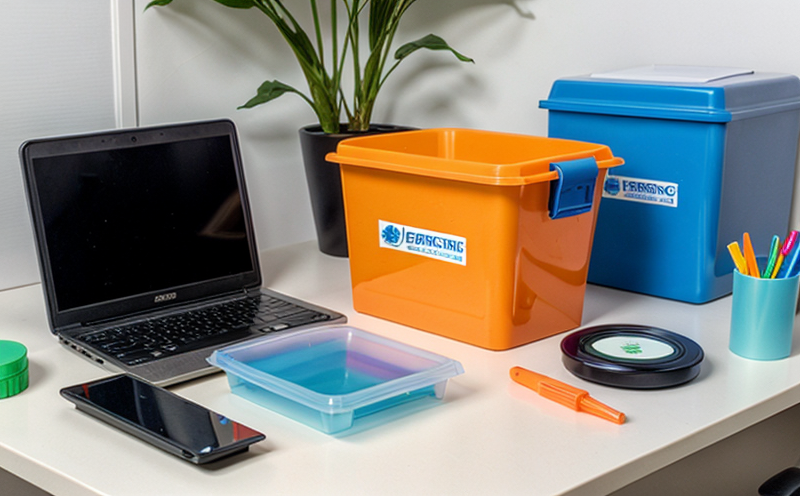NF EN 1730 Stability Testing of Plastic Office Tables
The NF EN 1730 standard establishes the requirements and test methods for determining the stability of plastic office tables. This testing is crucial to ensure that the furniture maintains its structural integrity under various stresses, including load, impact, and environmental factors. The primary goal is to assess how well the table can withstand a specified weight distribution without tipping or collapsing.
The standard covers the evaluation of static and dynamic stability, which involves both visual inspection and physical testing. Static tests are conducted to ensure that the table does not tip over when subjected to an applied load at different points on its surface. Dynamic stability is evaluated by applying a force in a controlled manner to simulate real-world scenarios such as someone walking across the table or objects being placed unevenly.
For this test, the specimen (the plastic office table) must be prepared according to the standard's specifications. This includes ensuring that all hardware is securely fastened and that any defects or inconsistencies are noted before testing begins. The test apparatus typically consists of a load frame capable of applying forces up to 1000N at various points on the table top.
The acceptance criteria for NF EN 1730 stability testing include ensuring that the table does not tip over when subjected to a specified load. The standard also specifies the maximum allowable deflection under load, which should be within certain limits depending on the type and size of the table being tested. Compliance with these criteria is essential for ensuring product safety and meeting regulatory requirements.
Compliance with NF EN 1730 not only ensures product quality but also enhances brand reputation by demonstrating a commitment to safety and durability. It helps manufacturers meet international standards, which can be advantageous in competitive markets where compliance is a key factor. Additionally, it provides peace of mind for consumers knowing that their furniture has been tested against rigorous criteria.
Here are some key points about the NF EN 1730 standard:
- The test applies to plastic office tables intended for use in commercial or residential settings.
- The standard specifies the test methods and acceptance criteria for static and dynamic stability.
- It covers both new products and existing stock that is being sold under a new certification scheme.
For more detailed information on NF EN 1730, including specific testing procedures and acceptance criteria, please refer to the full standard document. Our laboratory can provide comprehensive support throughout the testing process, from specimen preparation to final report generation.
| Test Parameter | Description |
|---|---|
| Static Load Test | Applies a specified load to different points on the table top and checks for tipping or collapse. |
| Dynamic Load Test | Simulates real-world scenarios such as walking across the table or placing objects unevenly. |
| Deflection Measurement | Metric used to determine how much the table flexes under load. |
Benefits of NF EN 1730 Stability Testing for Plastic Office Tables
Implementing NF EN 1730 stability testing offers numerous advantages, including:
- Enhanced Product Safety: Ensures that the product meets strict safety standards, reducing the risk of accidents and injuries.
- Improved Quality Control: Provides consistent quality across all manufactured units, enhancing overall customer satisfaction.
- Increased Market Competitiveness: Demonstrates a commitment to high-quality products, which can attract more customers and increase market share.
- Regulatory Compliance: Helps manufacturers meet international standards, ensuring compliance with legal requirements in various countries.
By adhering to NF EN 1730, companies can build trust with their clients and stakeholders while also reducing potential liability issues associated with unsafe products. This standard is particularly important for businesses operating in the office furniture sector where safety and durability are paramount concerns.
Environmental and Sustainability Contributions of NF EN 1730 Stability Testing
The stability testing prescribed by NF EN 1730 contributes significantly to sustainability efforts in several ways. First, it promotes the use of high-quality materials that are more durable and require less frequent replacement, thus extending the lifecycle of products. This reduces waste generation and conserves natural resources.
Second, compliance with this standard encourages the development of innovative designs that balance functionality, aesthetics, and sustainability. By focusing on long-lasting solutions, manufacturers can reduce their environmental footprint over time.
Finally, NF EN 1730 stability testing supports circular economy principles by facilitating easier recycling and reuse of materials at end-of-life stages. This approach minimizes landfill contributions and promotes the recovery of valuable resources from waste streams.
These contributions align with broader global goals aimed at reducing carbon emissions and fostering sustainable development practices across industries. Through rigorous testing like NF EN 1730, companies play a vital role in driving positive change towards more environmentally friendly business practices.
Use Cases and Application Examples of NF EN 1730 Stability Testing
- Office Furniture Manufacturers: Ensuring that their products meet stringent safety standards before entering the market.
- Retailers: Verifying that imported items comply with local regulations and expectations of consumers regarding product quality.
- Contractors: Providing evidence of compliance for large-scale projects requiring strict adherence to industry norms.
In practice, NF EN 1730 stability testing involves a series of steps starting from specimen preparation through to final analysis and reporting. Specimens are prepared according to the standard's guidelines before being subjected to static and dynamic load tests using appropriate equipment. The results are then analyzed against specified acceptance criteria.





